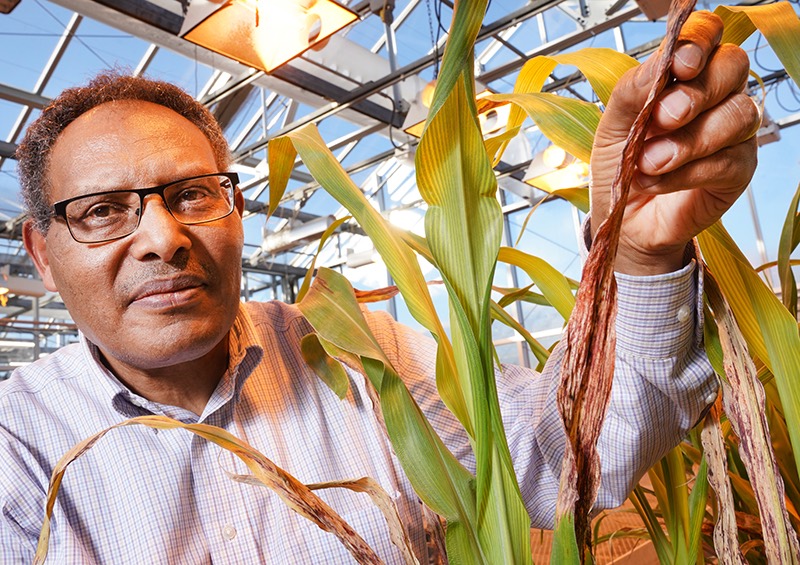Tesfaye Mengiste Lab
What We Do
Research in Dr. Mengiste's lab focuses on molecular mechanisms of plant responses to economically important fungal pathogens which reduce crop productivity worldwide. Critical genetic components of plant resistance are identified through genetic and genomic approaches in the model plant Arabidopsis, and two crop plants tomato and sorghum. By applying genetic, molecular, and biochemical approaches, his lab seeks to determine how these key components regulate plant immune responses required for resistance. Molecular and biochemical mechanisms of tomato resistance are studied with a focus on the role of tomato receptor like kinases, and their substrates to shed light on tomato immune responses to broad host fungal pathogens. In parallel, attempts are made to translate some of the findings into genetic improvement of crops for disease resistance. In sorghum, the natural variation in the germplasm is being explored to identify genes or genomic regions that confer broad-spectrum resistance to anthracnose and grain mold diseases. The overarching goal is to expedite genetic improvement of sorghum to increase productivity in disease prone sorghum producing regions.
Contact Us
Tesfaye Mengiste
mengiste@purdue.edu
915 W. State Street
Lilly Hall of Life Sciences
West Lafayette, IN 47907
765.494.0599
Featured Story
Featured Story

Scientists are honing the traits of speed, strength and near invulnerability in an important food crop that, much like a superhero, will help protect the vulnerable. Achieving a milestone in their pursuit of the Superman of sorghum plants,...
Read More